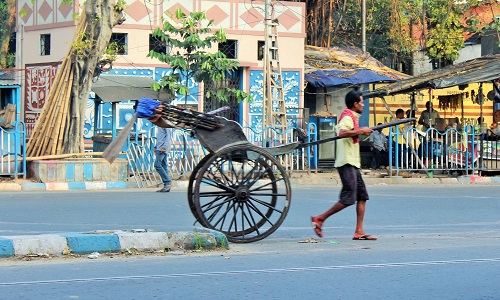Washington (ISJ): It is generally believed, full sleep in the night has several benefits including increased immune system, energy and productivity, and better memory among others. But a new study co-authored by economists of Massachusetts Institute of Technology (MIT) complicates this picture, suggesting that more sleep, by itself, isn’t necessarily sufficient to bring about those kinds of appealing improvements.
The study is based on a distinctive field experiment of low-income workers in Chennai, India, where the researchers studied residents at home during their normal everyday routines — and managed to increase participants’ sleep by about half an hour per night, a very substantial gain. And yet, sleeping more at night did not improve people’s work productivity, earnings, financial choices, sense of well-being, or even their blood pressure. The only thing it did, apparently, was to lower the number of hours they worked.
“To our surprise, these night-sleep interventions had no positive effects whatsoever on any of the outcomes we measured,” says Frank Schilbach, an MIT economist and co-author of a new paper detailing the study’s findings.
There is more it. The researchers found, short daytime naps do help productivity and well-being. On the other hand, participants tended to sleep at night in difficult circumstances, with many interruptions. The findings leave open the possibility that sound sleep, rather increased low-grade sleep, could be useful.
“People’s sleep quality is so low in these circumstances in Chennai that adding sleep of poor quality may not have the benefits that another half hour of sleep would have if it’s of higher quality,” Schilbach suggested.
The paper, “The Economic Consequences of Increasing Sleep Among the Urban Poor,” will be published in the August issue of The Quarterly Journal of Economics.
Sleeping on rickshaws
Schilbach, a development economist, says the genesis of the study came from other research he and his colleagues have done in settings such as Chennai — during which they have observed that low-income people tend to have difficulty sleeping in addition to their other daily challenges.
“In Chennai, you can see people sleeping on their rickshaws,” says Schilbach, who is also a faculty affiliate at MIT’s Abdul Latif Jameel Poverty Action Lab (J-PAL). “Often, there are four or five people sleeping in the same room where it’s loud and noisy, you see people sleep in between road segments next to a highway. It’s incredibly hot even at night, and there are lots of mosquitoes.”
The study examined 452 people over a month. Some were given encouragement and tips for better sleep; others received financial incentives to sleep more. Some members of both those groups also took daytime naps, to see what effect that had.
The participants in the study were also given data-entry jobs with flexible hours while the experiment was taking place, so the researchers could monitor the effects of sleep on worker output and earnings in a granular way.
“A key thing that stands out is that people’s sleep efficiency is low, that is, their sleep is heavily fragmented,” Schilbach explained. “They have extremely few periods experiencing what’s thought to be the restorative benefits of deep sleep. … People’s sleep quantity went up due to the interventions, because they spent more time in bed, but their sleep quality was unchanged.”
That could be why, across a wide range of metrics, people in the study experienced no positive changes after sleeping more. Indeed, as Schilbach notes, “We find one negative effect, which is on hours worked. If you spend more time in bed, then you have less time for other things in your life.”
On the other hand, study participants who were allowed to take a nap while on the data-entry job did fare better in several measured categories.
“We find clear evidence of naps improving a range of outcomes, including their productivity, their cognitive function, and their psychological well-being, as well as some evidence on savings,” Schilbach says. “These two interventions have different effects.”
The study found, naps only increased total income when compared to workers who took a break instead. Naps did not increase the total income of workers — nappers were more productive per minute worked but spent less time actually working.
“It’s not the case that naps just pay for themselves,” Schilbach says. “People don’t actually stay longer in the office when they nap, presumably because they have other things to do, such as taking care of their families. If people nap for about half an hour, their hours worked falls by almost half an hour, almost a one-to-one ratio, and as a result, people’s earnings in that group are lower.”
Source: MIT
Image: Representative


